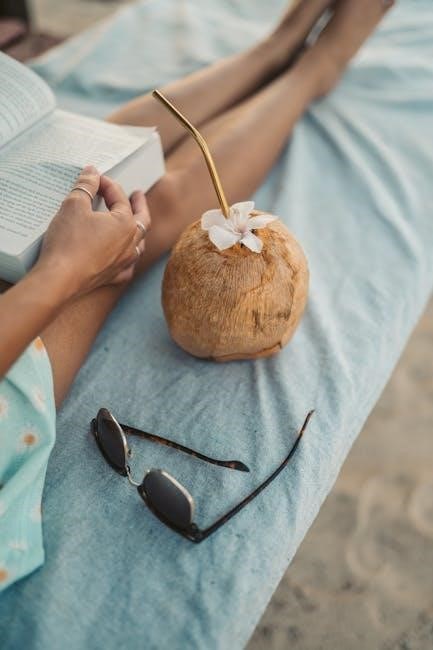Welcome to Vancouver, a vibrant city nestled between mountains and the Pacific Ocean. Known for its cultural diversity, stunning landscapes, and modern amenities, it offers endless exploration opportunities.
1.1 Geography and Climate of Vancouver
Vancouver is nestled between the Coast Mountains and the Pacific Ocean, offering breathtaking natural scenery. The city enjoys a mild oceanic climate, with warm summers and rainy winters. Its proximity to water and mountains creates a unique microclimate, keeping temperatures moderate year-round. Average summer highs are around 23°C (73°F), while winters remain mild at 3°C (37°F). The surrounding landscapes, including Stanley Park and nearby peaks, provide endless opportunities for outdoor exploration. This climate makes Vancouver a year-round destination, perfect for both urban and nature-based experiences.
1.2 Cultural Diversity and Vibrant Lifestyle
Vancouver is a multicultural mosaic, with a thriving arts and cultural scene. The city celebrates diversity through its vibrant neighborhoods, festivals, and cuisine. From Granville Island’s public market to Commercial Drive’s eclectic shops, there’s a blend of cultures at every turn. Annual events like the Vancouver Folk Music Festival and the Vancouver International Film Festival highlight its creative spirit. The city’s diverse population has created a dynamic food scene, offering everything from Asian fusion to Mediterranean delights. This cultural richness makes Vancouver a hub for artistic expression and global connectivity.
1.3 Brief History of Vancouver
Vancouver’s history began with Indigenous peoples inhabiting the area for thousands of years. Founded in 1867 as a small logging community, the city grew rapidly after the Canadian Pacific Railway arrived in 1887. The Great Fire of 1886 led to its rebuilding, and by the early 20th century, Vancouver became a bustling port city. Its strategic location made it a hub for trade and immigration, shaping its diverse cultural identity. Today, Vancouver honors its rich history while embracing modernity, offering a unique blend of heritage and innovation for visitors to explore.
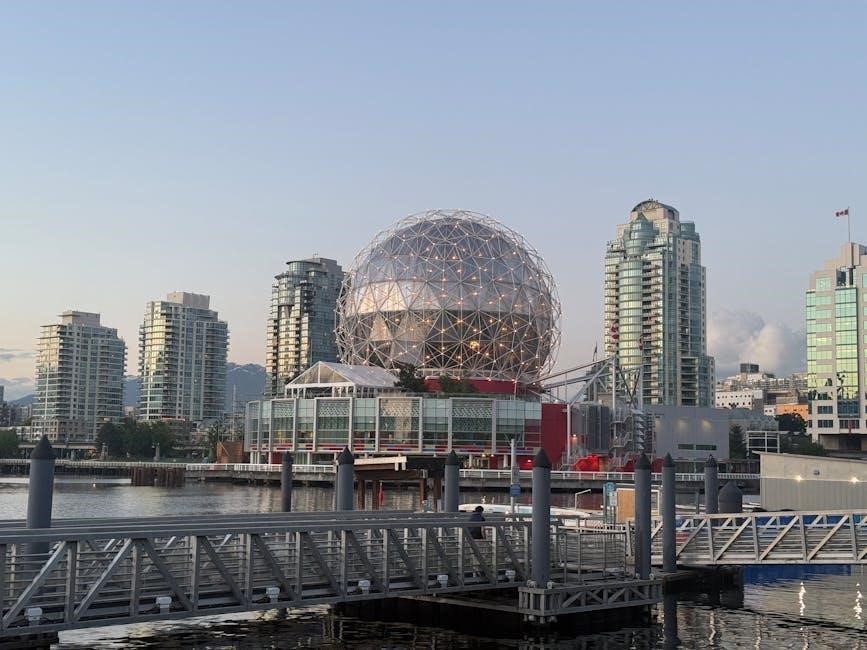
When to Visit Vancouver
Vancouver offers a mild climate year-round, making it ideal for visits anytime. Each season provides unique experiences, from outdoor adventures in summer to cozy winter escapes.
2.1 Best Time to Visit Vancouver
The best time to visit Vancouver is during the summer (June to August) for warm weather and outdoor activities, or in winter (December to February) for skiing and festive vibes. Spring (March to May) and fall (September to November) offer mild temperatures and fewer crowds, ideal for exploring parks and cultural sites. Plan your trip according to your preferences, as each season highlights a unique charm of the city; Booking accommodations in advance is recommended, especially during peak travel seasons.
2.2 Seasonal Activities and Events
Vancouver offers a wide range of seasonal activities and events for all interests. In spring, the city comes alive with the Vancouver Cherry Blossom Festival, while summer features outdoor concerts and events like Canada Day celebrations. Fall brings the Vancouver International Film Festival, attracting cinema enthusiasts worldwide. Winter highlights include festive markets and skiing at nearby resorts like Grouse Mountain; Each season provides unique experiences, from cultural festivals to outdoor adventures, making Vancouver a year-round destination with something for everyone to enjoy.
2.3 Weather Considerations for Travelers
Vancouver’s climate is mild year-round, with cool, rainy winters and warm, sunny summers. Spring and fall are ideal for outdoor activities, with mild temperatures and fewer crowds. The rainy season typically runs from October to March, so waterproof gear is essential. Summer months (June to August) offer warm weather, perfect for exploring beaches and parks. Check forecasts before planning outdoor adventures, as rain can occur unexpectedly. Pack layers for varying conditions, and enjoy the city’s lush greenery, a result of its consistent rainfall throughout the year.
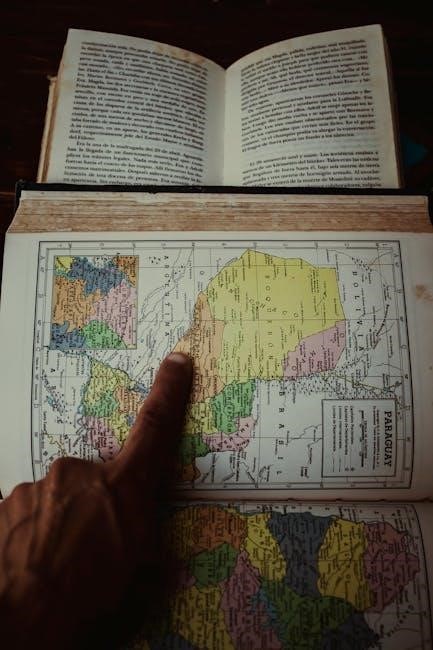
Where to Stay in Vancouver
Vancouver offers a wide range of accommodations, from luxury hotels to budget-friendly options, across vibrant neighborhoods like downtown, Gastown, and Yaletown, catering to all preferences and needs.
3.1 Popular Neighborhoods for Accommodation
Vancouver boasts diverse neighborhoods offering unique stays. Downtown Vancouver is ideal for central access to attractions, while Gastown charm and Yaletown’s modern vibe attract visitors. Coal Harbour provides waterfront views, and Kitsilano offers a laid-back, local experience. Each area caters to different preferences, ensuring a memorable stay in this vibrant city.
3.2 Best Hotels and Budget Options
Vancouver offers a wide range of accommodations to suit every traveler’s needs. The Fairmont Waterfront and Pan Pacific Vancouver are top-rated luxury options with stunning harbor views. For a boutique experience, consider the Opus Hotel or the Loden Hotel. Budget-friendly choices include hostels like the Cambie Hostel and affordable guesthouses in Kitsilano. Robson Street and Granville Island also feature charming B&Bs. Whether you’re seeking luxury or simplicity, Vancouver’s diverse lodging options ensure a comfortable and memorable stay.
3.3 Tips for Booking the Perfect Stay
Planning ahead is key to securing the best accommodations in Vancouver. Compare prices on platforms like Booking.com or Expedia to find deals. Read reviews to ensure quality and check for amenities like Wi-Fi or breakfast. Consider booking outside peak seasons for lower rates. Look for hotels near public transit to save on transportation. Downtown locations offer convenience, while neighborhoods like Kitsilano provide a local feel. Always verify cancellation policies and book in advance to avoid last-minute shortages. Prioritize your needs to balance budget and comfort for an ideal stay.
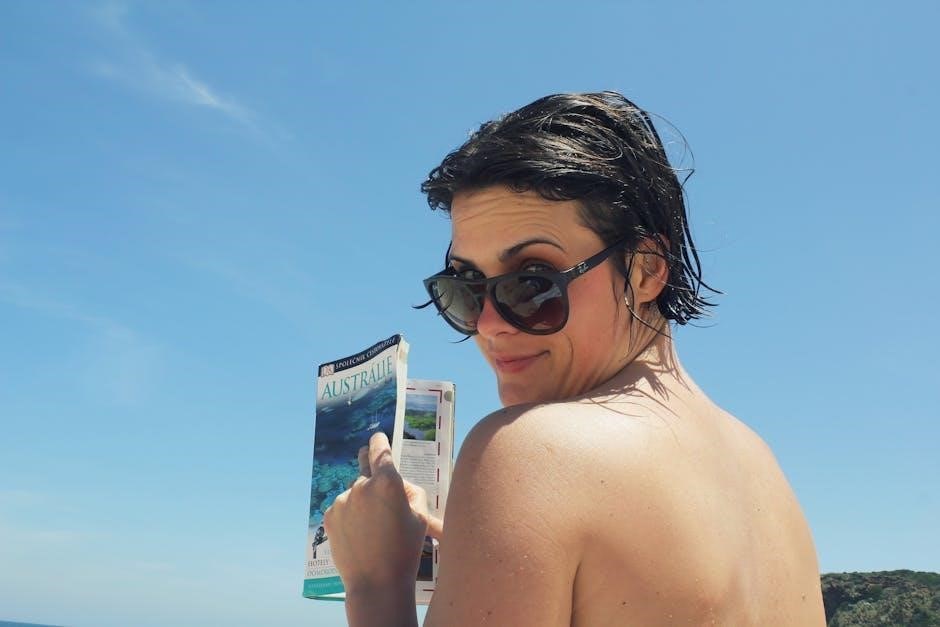
Things to Do in Vancouver
Vancouver offers a diverse array of activities, blending urban attractions with nature. From iconic landmarks to outdoor adventures, the city provides endless options for exploration and discovery.
4.1 Top Attractions and Landmarks
Vancouver is home to iconic landmarks that captivate visitors. Granville Island, with its bustling public market and artisan shops, is a must-visit. Stanley Park, one of North America’s largest urban parks, boasts stunning gardens, trails, and the picturesque seawall. Capilano Suspension Bridge Park offers thrilling suspension bridges and treetop adventures. Grouse Mountain provides panoramic views and outdoor activities, while the Vancouver Art Gallery showcases local and international art. These landmarks, blending nature and culture, make Vancouver an unforgettable destination for explorers and sightseers alike.
4.2 Outdoor Activities and Nature Experiences
Vancouver offers endless opportunities for outdoor enthusiasts. Explore Stanley Park’s trails, rent a bike, or stroll along the seawall. Hike the Grouse Grind or visit Lynn Canyon Park for waterfalls and suspension bridges. Kayak or paddleboard in False Creek or English Bay. Queen Elizabeth Park provides stunning city views, while Kitsilano Beach is perfect for swimming and picnics. For adventure, ski or snowboard at nearby Grouse, Cypress, or Seymour mountains. Vancouver’s proximity to nature makes it a paradise for outdoor lovers seeking adventure and tranquility.
4.3 Family-Friendly Places to Visit
Vancouver offers a variety of family-friendly attractions that cater to all ages. Granville Island is a must-visit, featuring a public market, street performers, and water activities. Stanley Park’s playgrounds, beaches, and miniature train are perfect for kids. The Vancouver Aquarium captivates with marine life exhibits, while the Bloedel Conservatory offers a tropical garden experience. For outdoor fun, Queen Elizabeth Park features beautiful gardens and a playground. Science World, with its interactive exhibits, and Playland, an amusement park, are also great options. These destinations ensure a fun and memorable experience for the whole family.
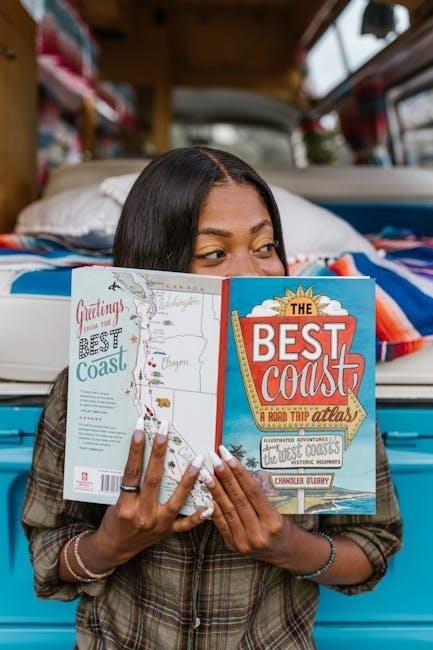
Dining in Vancouver
Vancouver offers a diverse culinary scene, blending Asian, seafood, and international flavors. Savor fresh seafood at Granville Island, explore food trucks, or enjoy budget-friendly eateries across the city.
5.1 Must-Try Local Cuisine and Restaurants
Vancouver’s culinary scene is a melting pot of flavors, with fresh seafood, Asian fusion, and farm-to-table dishes. Don’t miss iconic spots like Tojo’s for sushi and Guu with Garlic Nation for Japanese small plates. Seafood lovers should head to Blue Water Café or Joe Fortes for oysters and lobster. For a taste of Canada, try Hy’s Steakhouse or YEW seafood + bar. The city’s food trucks, like TacoFino, offer affordable, delicious eats. Vancouver’s dining options cater to every palate, making it a foodie’s paradise.
5.2 Best Seafood Spots in the City
Vancouver’s seafood scene shines with its fresh, sustainable options. Blue Water Café and Joe Fortes Seafood & Chop House are top spots for oysters, lobster, and impeccably prepared fish dishes. For a casual yet flavorful experience, The Fish Counter offers sustainable seafood bites. YEW seafood + bar at the Four Seasons Hotel provides a luxurious dining experience with ocean-to-table cuisine. Don’t miss Go Fish near Granville Island for fresh, locally sourced seafood in a cozy setting. These restaurants showcase Vancouver’s commitment to fresh, high-quality seafood.
5.3 Food Trucks and Street Food Options
Vancouver’s food truck scene is a culinary gem, offering a diverse range of flavors. Tacofino is a must-visit for Mexican-Korean fusion, while The Eatery serves creative Japanese-inspired dishes; 49th Parallel Coffee Roasters is perfect for coffee and pastries on the go. Food trucks are scattered across the city, with popular spots near Granville Island, downtown, and beaches. From gourmet grilled cheese to fresh seafood, Vancouver’s street food caters to every craving. Check schedules and arrive early, as lines can grow quickly for the most sought-after options.
Shopping in Vancouver
Vancouver offers a diverse shopping experience, from high-end fashion on Robson Street to local crafts at Granville Island. Explore boutique districts and malls like Pacific Centre.
6.1 Popular Shopping Districts and Malls
Vancouver boasts an array of shopping districts and malls that cater to all tastes and budgets. Robson Street is a hub for high-end fashion and luxury brands. Granville Island Public Market offers unique local crafts, artisanal goods, and fresh produce. Pacific Centre and Oakridge Centre are premier shopping malls with a wide range of retail options. For a more boutique experience, explore Gastown and Yaletown, known for their trendy shops and independent designers. Each district provides a distinct shopping atmosphere, making Vancouver a shopper’s paradise.
6.2 Local Markets and Craft Fairs
Vancouver’s local markets and craft fairs are a celebration of artisanal goods and community spirit. Granville Island Public Market is a must-visit, offering fresh produce, handmade crafts, and local delicacies. The Vancouver Flea Market showcases vintage items and unique treasures, while the Richmond Night Market dazzles with street food and multicultural goods. Seasonal craft fairs, like the Vancouver Christmas Market, highlight local artisans and craftspeople. These markets provide a chance to connect with the community and find one-of-a-kind souvenirs, making them a vibrant part of the city’s shopping scene.
6.3 Tips for Finding Unique Souvenirs
Discovering unique souvenirs in Vancouver is an art! Start by exploring independent boutiques in neighborhoods like Gastown and Yaletown. Support local artisans at craft fairs or markets, where handmade items tell a story. Avoid touristy shops and opt for Indigenous designs, such as jewelry or artwork, to take home a piece of Canadian culture. Visit during holiday markets for seasonal treasures or shop small at local pop-ups. Interact with vendors to learn the stories behind their creations—this personal touch makes your souvenirs truly special and memorable.
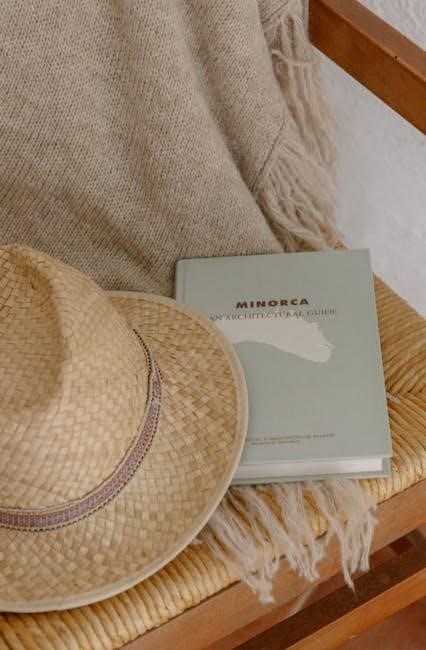
Day Trips from Vancouver
Vancouver’s surroundings offer endless day trip opportunities. Explore nearby cities like Whistler, Richmond, or Surrey, or venture into nature with scenic drives to Capilano Suspension Bridge Park or Lynn Canyon.
7.1 Exploring Nearby Cities and Towns
Vancouver’s proximity to charming cities and towns makes it ideal for day trips. Whistler, a 90-minute drive away, offers outdoor adventures like skiing and hiking. Richmond, just 30 minutes away, is famous for its Asian cuisine and cultural attractions. Surrey, with its sprawling parks and vibrant arts scene, is another nearby gem. Squamish, known as the “Outdoor Recreation Capital of Canada,” is perfect for mountain biking and rock climbing. Each town provides a unique glimpse into British Columbia’s diverse culture and natural beauty, making them must-visit destinations for any traveler.
7.2 Scenic Drives and Road Trip Ideas
Vancouver’s stunning natural beauty makes it a paradise for road trips. The Sea-to-Sky Highway, a 90-minute drive to Whistler, offers breathtaking ocean and mountain views. Another popular route is the Fraser Valley loop, showcasing rolling hills and farmland. For a longer adventure, explore the Sunshine Coast via Highway 101, with charming stops like Gibsons and Sechelt. Each drive provides a unique perspective on British Columbia’s landscapes, blending urban charm with untouched wilderness. These routes are perfect for capturing memorable moments and immersing yourself in the region’s scenic splendor.
7.3 Nature Escapes and Wildlife Adventures
Vancouver offers incredible opportunities to connect with nature and wildlife. Explore Wells Gray Provincial Park, known for its waterfalls and hiking trails, or visit nearby lakes and forests for serene escapes. Wildlife enthusiasts can spot bears, eagles, and salmon in their natural habitats. The Sea-to-Sky Highway also provides access to scenic stops perfect for photography and outdoor adventures. Whether hiking, birdwatching, or simply immersing yourself in nature, Vancouver’s diverse ecosystems ensure unforgettable experiences for all nature lovers.

Transportation in Vancouver
Vancouver offers convenient transportation options, including public transit, car rentals, and cycling. The city’s walkable design and bike paths enhance accessibility for all travelers.
8.1 Getting Around the City
Vancouver offers a variety of transportation options, making it easy to explore the city. The SkyTrain, buses, and SeaBus provide efficient public transit, while car rentals and ride-hailing services offer flexibility. Walking and cycling are also popular, with bike-share programs and dedicated bike lanes. Taxis are widely available, though less common due to ride-hailing apps. The city’s compact downtown and well-connected neighborhoods ensure convenient access to attractions, whether by public transit, car, or on foot. Planning your route with a transit map or app is highly recommended for seamless navigation.
8.2 Public Transit Options and Maps
Vancouver’s public transit system is efficient and extensive, featuring SkyTrain, buses, and SeaBus. The TransLink website and app provide detailed maps and real-time updates, helping you plan routes seamlessly. A Compass Card is the most convenient way to pay fares, offering affordable options for singles, day passes, or monthly passes. Printed maps are available at transit hubs, while digital versions ensure easy access on your smartphone. Whether you’re exploring downtown or venturing to outer neighborhoods, Vancouver’s public transit system makes navigation straightforward and stress-free for visitors and locals alike.
8.3 Renting a Car in Vancouver
Renting a car in Vancouver offers flexibility for exploring the city and its surroundings. Major rental companies like Hertz, Avis, and Budget operate at Vancouver International Airport and downtown locations. A valid driver’s license and credit card are required. Rates vary by season, with economy cars starting around $40-60 CAD per day. Insurance options are available, and some companies offer GPS. Booking in advance is recommended for better deals. Parking in Vancouver can be pricey, but renting a car is ideal for day trips to nearby attractions like Whistler or the Fraser Valley.
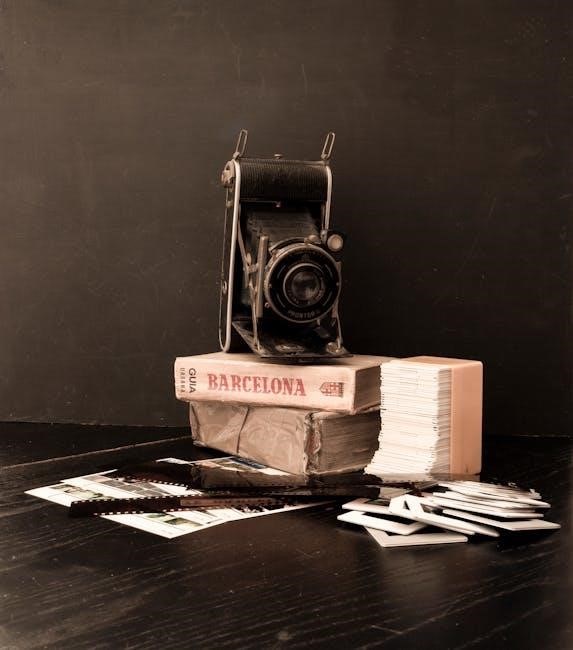
Budgeting for Your Trip
Planning your budget is essential for a stress-free trip. Average daily expenses in Vancouver range from $80-150 CAD per person. Track spending and allocate wisely.
9.1 Average Costs for Accommodation and Food
In Vancouver, accommodation costs vary widely. Budget travelers can find hostels for $30-50 CAD per night, while mid-range hotels average $100-200 CAD. Luxury options exceed $250 CAD. Food prices are moderate, with fast food meals around $10-15 CAD and mid-range restaurant meals costing $20-40 CAD per person. Groceries are affordable, with weekly essentials averaging $50-75 CAD. Fine dining experiences can range from $50-100+ CAD per person. Planning meals and accommodation in advance helps manage expenses effectively for a balanced budget.
9.2 Budget-Friendly Activities and Tips
Vancouver offers plenty of affordable activities for travelers. Explore Stanley Park, visit the Vancouver Art Gallery on a budget-friendly day, or stroll through Granville Island Market. Public transit is cost-effective for getting around. Consider purchasing a day pass for unlimited rides. Pack picnics using local market goods to save on meals. Free attractions like Queen Elizabeth Park and Kitsilano Beach are great for relaxation. Look for happy hour deals at local pubs and cafes. Planning ahead and utilizing free city guides can help maximize your experience without overspending.
9.3 Managing Your Travel Expenses
Effective expense management is crucial for a stress-free trip. Start by setting a realistic budget and categorizing spending into accommodation, food, and activities. Opt for cost-effective options like public transit and cooking meals instead of dining out frequently. Tracking expenses with a budgeting app helps maintain accountability. Allocate a portion of your budget for unexpected costs to avoid financial strain. Prioritize experiences over material purchases to make the most of your trip without overspending. Planning ahead ensures a balanced and enjoyable journey, allowing you to explore Vancouver with financial ease and confidence.
Safety Tips for Travelers
Vancouver is generally safe, but stay informed about local conditions. Be aware of your surroundings, secure valuables, and respect local customs to ensure a safe journey.
10.1 Staying Safe in Vancouver
Vancouver is a safe city, but taking precautions is essential. Most neighborhoods are safe for tourists, but avoid dimly lit or isolated areas at night. Be cautious in Gastown and Downtown Eastside, where petty crime can occur. Always follow local advice and keep valuables secure. Respect nature while exploring outdoor spaces, as wildlife encounters are possible. Stay informed about weather conditions, especially near waterways. Follow traffic rules when walking or cycling, as drivers can be unpredictable. Be mindful of pickpocketing in crowded areas like Granville Island or public transit. Stay aware of your surroundings and trust your instincts for a safe visit.
10.2 Emergency Services and Contacts
In case of emergencies, dial 911 for immediate assistance from police, fire, or ambulance services. For non-urgent situations, contact the Vancouver Police Department at 604-717-3321. Major hospitals like Vancouver General Hospital (604-875-4111) and St. Paul’s Hospital (604-682-2344) provide 24/7 care; The Vancouver Coastal Health hotline (604-736-2033) offers medical advice. For poison-related emergencies, call the Canada Poison Centre at 1-866-454-1212. Carry travel insurance details and your home country’s embassy contact. Stay informed through local news for updates on safety and weather alerts.
10.3 Avoiding Scams and Petty Crimes
While Vancouver is generally safe, petty crimes like pickpocketing can occur in crowded areas. Be cautious in popular tourist spots and avoid leaving valuables unattended. Scams targeting tourists, such as fake fundraising schemes, exist; verify legitimacy before donating. ATM scams are rare but possible—use machines in well-lit, busy areas. Be wary of overly aggressive panhandlers or individuals offering unsolicited services. Never leave drinks unattended in bars. Secure your accommodation and keep valuables in a safe place. Stay informed and trust your instincts to avoid potential risks during your visit.
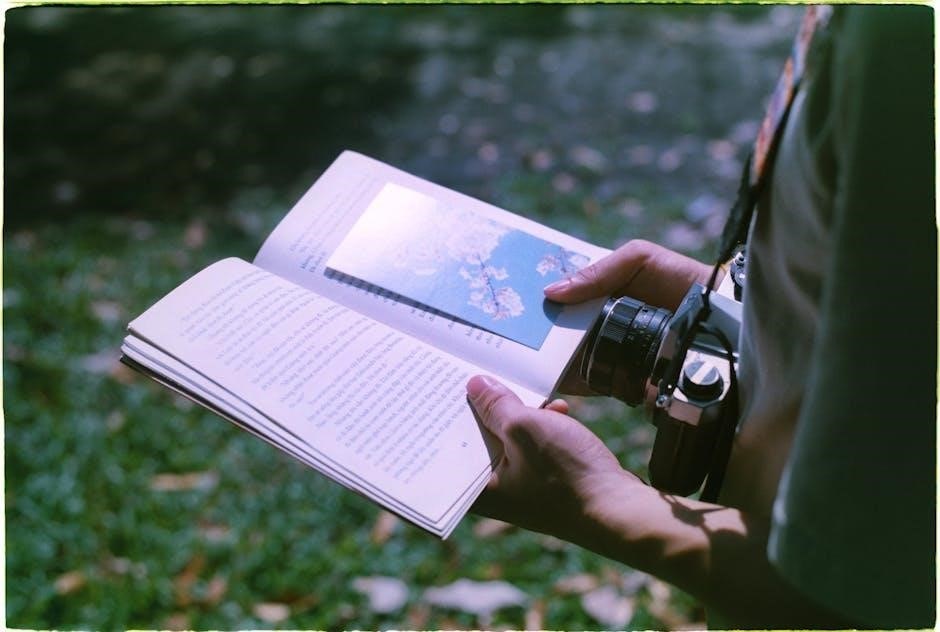
Cultural Etiquette in Vancouver
Vancouver celebrates diversity, so be respectful of all cultures. Tipping in restaurants and bars is customary, typically 15-20%. Engage politely with Indigenous communities, valuing their traditions.
11.1 Respecting Local Customs and Traditions
Vancouver is a culturally diverse city, and respecting local customs is key to a harmonious experience. Learn about Indigenous traditions, as many communities share their heritage openly. When interacting with cultural sites or events, dress modestly and follow guidelines. Tipping is expected in restaurants and bars, typically 15-20%, as it reflects appreciation for service. Be mindful of personal space and polite communication, as Canucks value friendliness and inclusivity. By embracing these practices, you contribute to a positive and respectful visit.
11.2 Tipping Practices in Restaurants and Bars
Tipping is a standard practice in Vancouver’s service industry, reflecting appreciation for good service. In restaurants and bars, a tip of 15-20% of the total bill is customary, depending on the quality of service. For example, 15% is considered standard, while 20% or more is for exceptional service. Some establishments may include a gratuity charge, especially for larger groups. Always check the bill to avoid double-tipping. Cash tips are preferred, but credit card payments often allow you to add a tip. This practice is deeply ingrained in Canadian culture and ensures a positive dining experience.
11.3 Interacting with Indigenous Communities
When engaging with Vancouver’s Indigenous communities, respect and cultural sensitivity are key. Learn about local traditions, protocols, and history to foster meaningful interactions. Support Indigenous-owned businesses and attend cultural events to deepen your understanding. Many communities welcome visitors to share their stories and art. Be mindful of cultural sensitivities and ask permission before taking photos or participating in ceremonies. Vancouver is home to the Musqueam, Squamish, and Tsleil-Waututh Nations, whose rich heritage enriches the city’s identity. By showing respect and curiosity, you can build positive connections and contribute to reconciliation efforts.
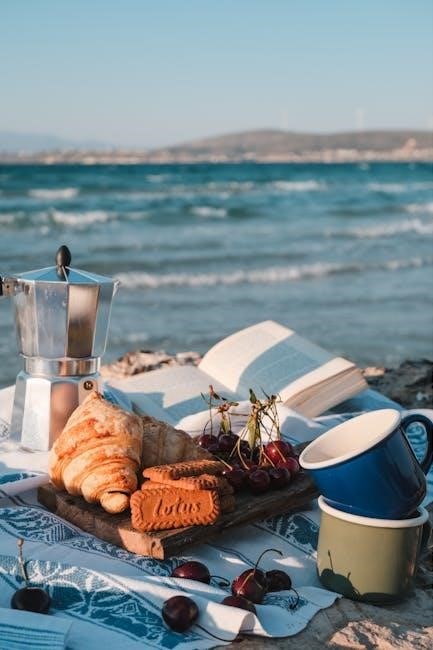
Final Tips for Your Vancouver Adventure
Plan your itinerary thoughtfully, pack essentials like rain gear, and immerse yourself in the city’s vibrant culture to make the most of your unforgettable Vancouver experience.
12.1 Planning Your Itinerary
Start by assessing your interests and travel duration. Prioritize attractions like Stanley Park, Granville Island, and Capilano Suspension Bridge. Balance outdoor activities with cultural experiences like museum visits or food tours. Consider seasonal events and weather when scheduling. Allocate time for spontaneous exploration to soak in the city’s vibe. For longer stays, include day trips to nearby destinations. Use online resources or travel apps to map out your days efficiently. A well-planned itinerary ensures you make the most of your Vancouver adventure without feeling rushed or missing key highlights.
12.2 Packing Essentials for Your Trip
Pack lightweight, breathable clothing suitable for varying weather conditions. Include waterproof gear, comfortable walking shoes, and layers for cooler mornings and evenings. Don’t forget essentials like toiletries, a reusable water bottle, and a universal power adapter. Bring a travel-sized umbrella and sunscreen for outdoor explorations. Consider packing a small first-aid kit and any personal medications. For tech enthusiasts, include a portable charger and camera for capturing stunning views. Ensure you have all necessary travel documents, such as your passport and ID. Check the weather forecast before your trip to adjust your packing list accordingly.
12.3 Making the Most of Your Time in Vancouver
To maximize your Vancouver experience, plan a balanced itinerary that mixes iconic attractions and hidden gems. Prioritize must-see spots like Stanley Park and Granville Island, but leave room for spontaneous adventures. Take advantage of the city’s walkability and efficient public transit to explore diverse neighborhoods. Don’t miss the opportunity to engage with locals for insider tips on restaurants and activities. Make time for outdoor activities, such as hiking or kayaking, to connect with nature. With thoughtful planning and an open mindset, you’ll create unforgettable memories in this breathtakingly beautiful city.
